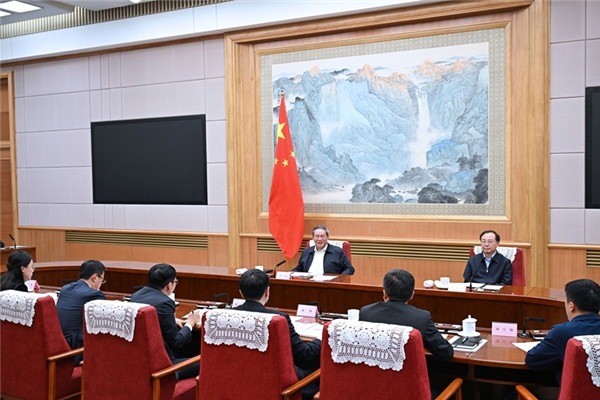Forum eyes world supply chain reshaping

China's accelerating digital transformation is evolving from an internal modernization drive into a global economic force, increasingly shaping the structure and resilience of world supply chains.
"Enterprises must adopt a 'top-down and grounded' vision," said Yao Jianming, professor at Renmin University's Business School. "'Top-down' means influencing entire industries and national systems, while 'grounded' means addressing real challenges through data, networks and computing to power high-quality development."
Yao identified digital technologies, from artificial intelligence and big data to blockchain, as the core of China's new quality productive forces. "Digital transformation isn't about replacing people," Yao added. "It's about empowering them to create greater value." He made the remarks at a parallel session of the 2025 Tongzhou Global Development Forum in Beijing on Friday.
That vision is gaining momentum in the corporate world. Xiamen ITG Group Corp Ltd, a leading trading and supply-chain services company, recently joined forces with a Shanghai-based AI enterprise and a Xiamen supply-chain innovation firm to advance "AI + supply chain" projects.
"Globalization is shifting from efficiency to resilience," said Liu Zhitao, an executive at ITG. "The Belt and Road Initiative is not only cross-border trade but also an industrial collaboration platform. Under the 'dual circulation' strategy, we're building supply chains that connect resources, manufacturing and markets."
The transformation is also visible in small businesses. In Yiwu of Zhejiang province, China's renowned small-commodity hub, a "market procurement trade" model has enabled thousands of micro-exporters to reach global markets. Professor Gu Kejian, also from Renmin University, said that more than 80 percent of Yiwu's exports rely on this system. "It may seem small, but it's a major innovation," he said.
Yiwu's modernization took another step forward on Tuesday, with the opening of the Global Digital Trade Center, a flagship project of the city's sixth-generation market. Working with Tencent, the center has introduced AI navigation and robotic systems for smarter, more interactive trade services.
Recent trade frictions between China and the United States have drawn widespread attention to the stability of global supply chains. Experts say that while China is committed to safeguarding supply chain stability and actively creating new opportunities for global trade and economic development through innovation, the US approach is undermining the multilateral trading system and disrupting global supply chain stability.
On Friday, the Ministry of Commerce released the 2025 Report on WTO Compliance of the United States. The ministry expressed "serious concern" over US actions that it said undermine the multilateral trading system. A ministry official stressed that the WTO-centered multilateral trading system remains the cornerstone of global trade and economic globalization. The report urged the US to correct its wrong practices, withdraw illegal tariff measures such as the so-called reciprocal tariffs, and fulfill its WTO obligations, calling for cooperation among all members to build a fair and inclusive global economy.
Separately, He Yongqian, spokeswoman for the ministry, said the measures of export control on rare earths are "a normal step to strengthen the export control framework" and "not directed at any specific country." Export applications for legitimate civilian use, she added, will continue to be approved.
Contact the writers at lijing2009@chinadaily.com.cn




































